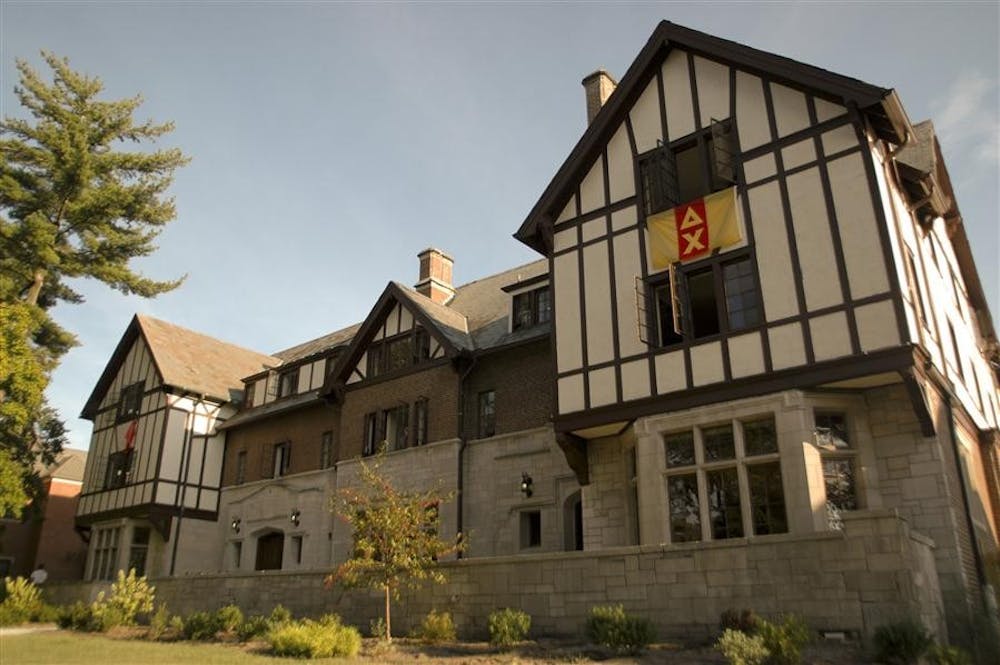So, you’re thinking about going greek?
You’ve seen the movies, heard the hype and now the opportunity has presented itself — the chance to join a house. But you’re not sure if it’s for you.
IU’s greek community makes up roughly 20 percent of campus and includes 19 sororities within IU’s Panhellenic Association and 30 fraternities within IU’s Interfraternity Council.
“At IU, we do everything big, and our greek life is no exception,” said sophomore Hayley Ward, a member of Alpha Omicron Pi. “We do everything bigger. We work harder.”
In one year, the IU greek organizations have donated $850,000 through philanthropy events, as well as providing the Bloomington community with 250,000 hours of community service.
Ward said this dedication is what helps IU’s greek system stand out, not just on campus but throughout the nation.
“I really think we all devote ourselves,” Ward said. “Whether it is bettering your house, bettering your philanthropy or bettering the greek system as a whole, we all strive throughout the community to make everything better.”
This drive seems to be what fuels the greek system to reach for more — more money donated to philanthropy, more volunteer hours, more opportunities.
“Philanthropy, volunteering, networking — I would never have the opportunity to experience them if I weren’t in a house,” said junior Natalie Marinello, a member of Kappa Kappa Gamma.
Along with philanthropy and volunteering, the all-greek grade point average is consistently higher than the undergraduate average, 3.2 to 3.04, respectively.
“It’s a huge advantage, always having brothers around that are either taking the same class as you or have taken it and are willing to help you,” said junior Jeremy Screeton, a member of Sigma Pi.
And having people around is something everyone in greek life grows accustomed to. On average, sororities have a two-year live-in policy, meaning you must live in the house a minimum of two years. While fraternities go along the same guidelines, live-in policies tend to be more laid-back.
This policy might seem restrictive, but it is part of how brothers and sisters bond.
“The connections that you make within your house are intangible assets,” said junior Evan Stein, president of Sigma Alpha Mu. “They will stick with you for many, many years to come in your personal life, working life and almost all aspects of post-college life.”
These post-college ties are another huge asset to going greek — the opportunity to network. With thousands of alumni worldwide, greeks not only have the benefit of knowing brothers or sisters in the house, but also alumni who might help with internships and jobs.
Of course, while the greek system is more than just its social life, though that is what draws many into the
rush process.
“I’m from a different state,” said junior Lisa Wagner, a member of Sigma Delta Tau. “Not only does being in a house make the campus much smaller, it opens the door to meeting so many new people. When you’re in a house, there is always something to do, always something going on.”
From formals to intramurals, date parties to tailgates, there is always a greek function happening somewhere on campus. Greeks also enjoy Little 500, Homecoming, Greek Week, parent’s weekends and pair parties.
“It has given me opportunities that I would not have had the chance to have in college,” Stein said. “It has provided me concrete bonds with people who will be there for me all the way through life.”
Greek life offers own set of advantages

Get stories like this in your inbox
Subscribe





